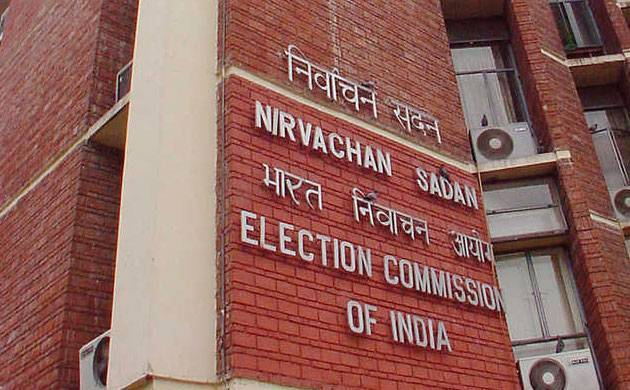In their seminal work How Democracies Die, Harvard professors Steven Levitsky and Daniel Ziblatt put it succinctly: democracies die at the hands of elected leaders who subvert the very process that brought them to power. The elected authoritarians slowly, but steadily, weaken the critical institutions like the judiciary and press and the established political norms.
The authoritarians employ ingenious methods to get re-elected with a bigger majority. That will give them not only legitimacy but an aura of invincibility. Of over two dozen global studies on poll rigging, How to Steal an Election in Broad Daylight by Nic Cheeseman and Brian Klaas and How Autocrats can Rig the Game and Damage Democracy by Lucan Ahmad Way and Steven Levitsky stand out.
Levitsky narrates how the ruling parties pack judiciaries, electoral commissions and other independent bodies to ensure that the incumbent will win critical electoral, legal or other disputes. The professors mentioned rigging techniques like gerrymandering, rotten borrows and putting up namesakes to confuse the voters. None of this is new to Indians.
Amit Shah’s operation in West Bengal could well offer much more valuable input for political scientists. The home minister’s political aides, BJP’s state prabhari, union ministers assigned to the constituencies, local BJP leaders, the CRPF, and most disturbingly the Election Commission and its observers worked in tandem for four months.
Look at the turn of events:
Explicitly partisan
Sunil Arora was brought in as chief election commissioner in December 2018, just four months before the Lok Sabha polls. Since then he was seen as an appendage of the ruling elite. It was alleged that he delayed the 2019 Lok Sabha poll rollout up to March 10, 2019 to give enough time for the Prime Minister to complete his inauguration spree. The Supreme Court had to intervene six times to warn Nirvachan Sadan against deviations from the principle of fair play.
In the course of two months in the run-up to the 2019 Lok Sabha polls, as many as 40 serious complaints were filed with the commission by the opposition leaders. Never in the past had the commission received as many as 40,000 complaints from the political parties and candidates. Decisions on some of the opposition complaints were kept pending for over a month.

File photo of Amit Shah and Narendra Modi. Photo: PTI
On April 16, 2019, the Supreme Court threatened to drag the CEC to the court to explain his failure to impose restrictions on hate speech. Two weeks later, on April 29, 2019, the apex court ordered to hear the complaints of non-action by the commission in several specific complaints. That day, Nirvachan Sadan hurriedly called a full meeting of the commission to hear the complaints against Modi and Shah and ‘others like Rahul Gandhi’.
The chief election commissioner’s reputation as an impartial institution suffered because it showed unusual reluctance to take up complaints of the code violation by the Prime Minister. On April 1, 2019, Modi said at Wardha that Rahul Gandhi was contesting from a “safe” constituency “where the majority community is in minority”. The communal undertone was apparent. Yet it took four weeks for the EC to conclude that Modi’s was an “innocent” remark. At Latur on April 9, 2019, Modi made a direct appeal to the first-time voters asking them to dedicate their votes to the Air Force team that struck at Balakot and the martyrs of Pulwama. Nirvachan Sadan held that Modi did not directly appeal for votes in the name of armed forces.
As per rules, the campaign in West Bengal was to end at 5 pm on May 17, 2019. The EC issued the unprecedented order on May 16, 2019, afternoon following complaints from the local BJP leaders. What made it all the more strange was that the ban came into effect from 10 am. Why 10 am? As per chief minister Mamata Bannerjee, the revised timing was to facilitate a Modi rally in Bengal which was to end at 10 am that day.
However, Ashok Lavasa, one of the commissioners, did not support the CEC on many of his contentious decisions. Such decisions were taken by a split verdict of two-to-one. This included the clean chit given to Prime Minister on his speeches on April 1, 6 and 9, 2019. For this, Lavasa had to suffer harassment by agencies like the enforcement directorate. Suddenly, his wife, son and sister came under investigation. Finally, in August, 2020, he resigned as election commissioner to join Asian Development Bank.
The Outlook weekly suggested that Sunil Arora may well get a gubernatorial post after retirement. Of late, such quid pro quo has happened in other cases, including that of chief justice of India. That is not the point.
Incumbents like Sunil Arora are offshoots of what the GroundTruth Project calls authoritarian’s playbook. Democracy Undone: The Authoritarian Playbook is a study chronicling techniques used by seven populist authoritarians, including Narendra Modi. Undermining institutions is top on the populist agenda. The other six are to rewrite history, target outsiders, exploit religion, weaponise fear, divide and conquer and erode truth.
P. Raman covered politics for national dailies since 1978 and is the author of Strong Leader Populism: How Modi’s Hybrid Regime Model Reshaping Political Narrative, Ecosystem and Symbols.
